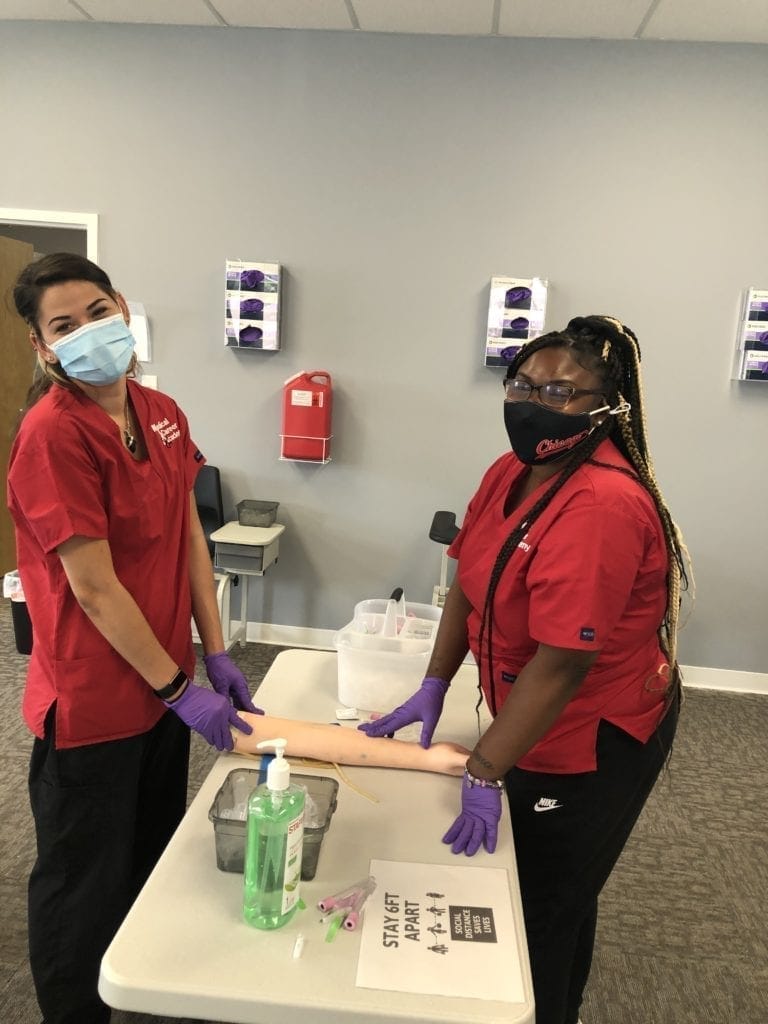Medical assistants are essential members of the healthcare team. They aid physicians and nurses in their daily work by providing direct patient care, facilitating medical procedures, and ensuring the smooth running of the medical facility.
The exact clinical duties of a medical assistant can vary from one institution to the next, but all of them generally require the assistant to do the following things:
One of the primary things a clinical medical assistant does is take a patient’s vital signs. Vital signs provide necessary information to medical experts about a patient’s health and overall well-being.
Physicians use vital signs to detect medical problems or diagnose diseases. So, clinical medical assistants are expected to check for temperature and take blood pressure, pulse rate, and respiration rate.
Taking vital signs correctly helps you in your career as a clinical medical assistant and saves a life.
You can obtain a patient’s medical history in several ways to get the patient’s current state of health, medical history (including any relevant family history), and present way of life. When treating a patient, the doctor needs access to as much pertinent information as necessary to correctly help a patient.
As a clinical medical assistant, you will need to engage the patient in conversation by asking them questions and spending time explaining the context of those questions. This will aid in ensuring the patient is aware of their condition and treatment options.
A person can learn much about their health through a thorough physical examination. It helps doctors formulate the most accurate diagnosis or confirm a patient is in good health for their peace of mind.
Drawing blood is essential to the clinical medical assistant role. Physicians typically require blood tests to diagnose disorders such as diabetes and cancer or to check organ functions.
Some patients may become anxious at the sight of blood or needles, which is where expertise in medical assistance helps. Enrolling in a clinical medical assistant school could teach you how to draw blood and calm anxious patients while offering outstanding treatment.
It takes practice to become proficient at drawing blood and collecting lab specimens, but with time and effort, you can do so easily.
Clinical medical assistants should also be prepared to assist with a medical procedure. Your duties will be outlined in light of the specifics of the process.
Common ways to help out during medical procedures include:
- Preparing the patient for surgery
- Supporting the medical staff during an operation
- Post-operative Cleaning
- Supplying Post-Operative Care
Depending on the specifics of the procedure, you might be asked to hold instruments or reposition the patient. Your duties may also include sterilizing instruments and discarding used materials after surgery.
Additional assistance, such as patient care, may also be needed. This is part of helping the patient get dressed and explaining what to do after surgery.
Patient care might be regarded as the medical counterpart of consumer service. You expect to be treated warmly and greeted with a smile when you enter one of your local businesses.
Outstanding patient care occurs in a medical office when a patient’s problems and requirements are addressed professionally and with empathy. It can take the form of therapeutic conversation, choosing empathy for a demanding patient, or simply performing your clinical medical assistant tasks well.
Clinical medical assistants also take charge of scheduling appointments and managing patient information. They also organize doctors’ and nurses’ schedules to ensure patients get appointments and data management, billing, and patient education.
Conclusion
Medical assistants must efficiently and effectively carry out these tasks to provide patients with high-quality care. Medical assistants often perform administrative tasks like appointment scheduling and record keeping in addition to their clinical duties.
The Medical Career Academy provides the best medical education in all of Indiana. We’re committed to giving each student the best education possible in several medical specializations.
Keeping the required classes for a medical career minimum while maintaining a high education standard is central to our strategy. Enroll in one of our medical assistant classes in Indiana today and get started on your education immediately.

